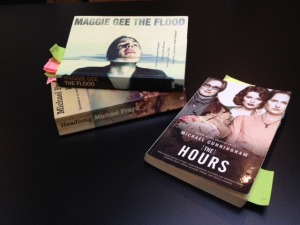Nine Worlds GeekFest #1: Is Our Future Utopian Or Dystopian?
Science fiction writers are getting ‘carried away with fear,’ according to author Tricia Sullivan. ‘There’s a failure to imagine a positive future. As a writer it’s harder to build things up than blow things up… Finding an element of hope really does mean disabling all my instincts as a science fiction writer.’
Sullivan was part of a four-author panel debating the question Is Our Future Utopian Or Dystopian? at Nine Worlds GeekFest 2013 in London last weekend. Her remark came in response to a challenge from Tom Hunter, director of The Clarke Awards, who chaired the event. He asked: ‘How do we find an element of hope?’ Sullivan quoted from Oscar Wilde: ‘The basis of optimism is sheer terror.’ (From The Picture of Dorian Gray). Read more








